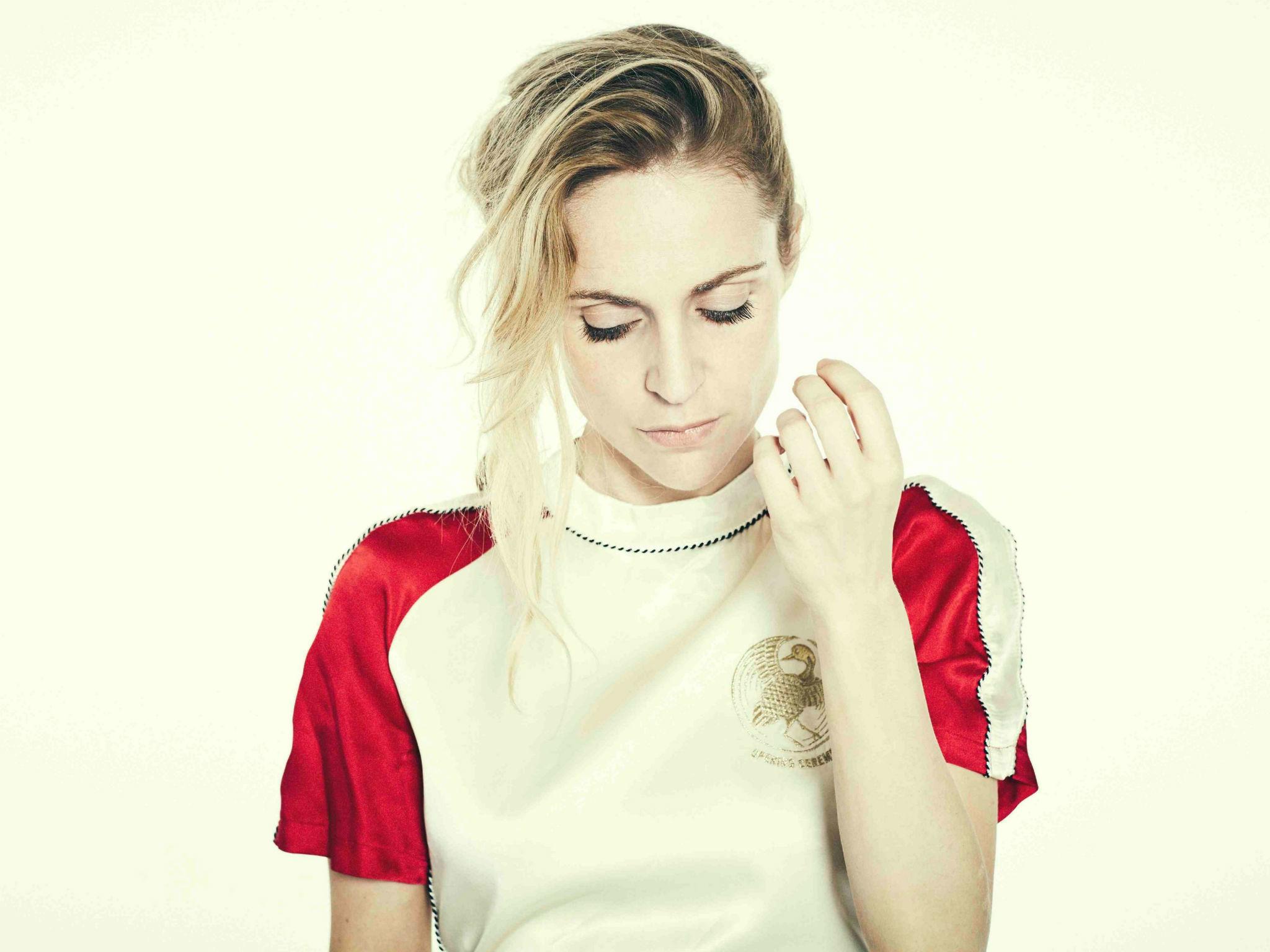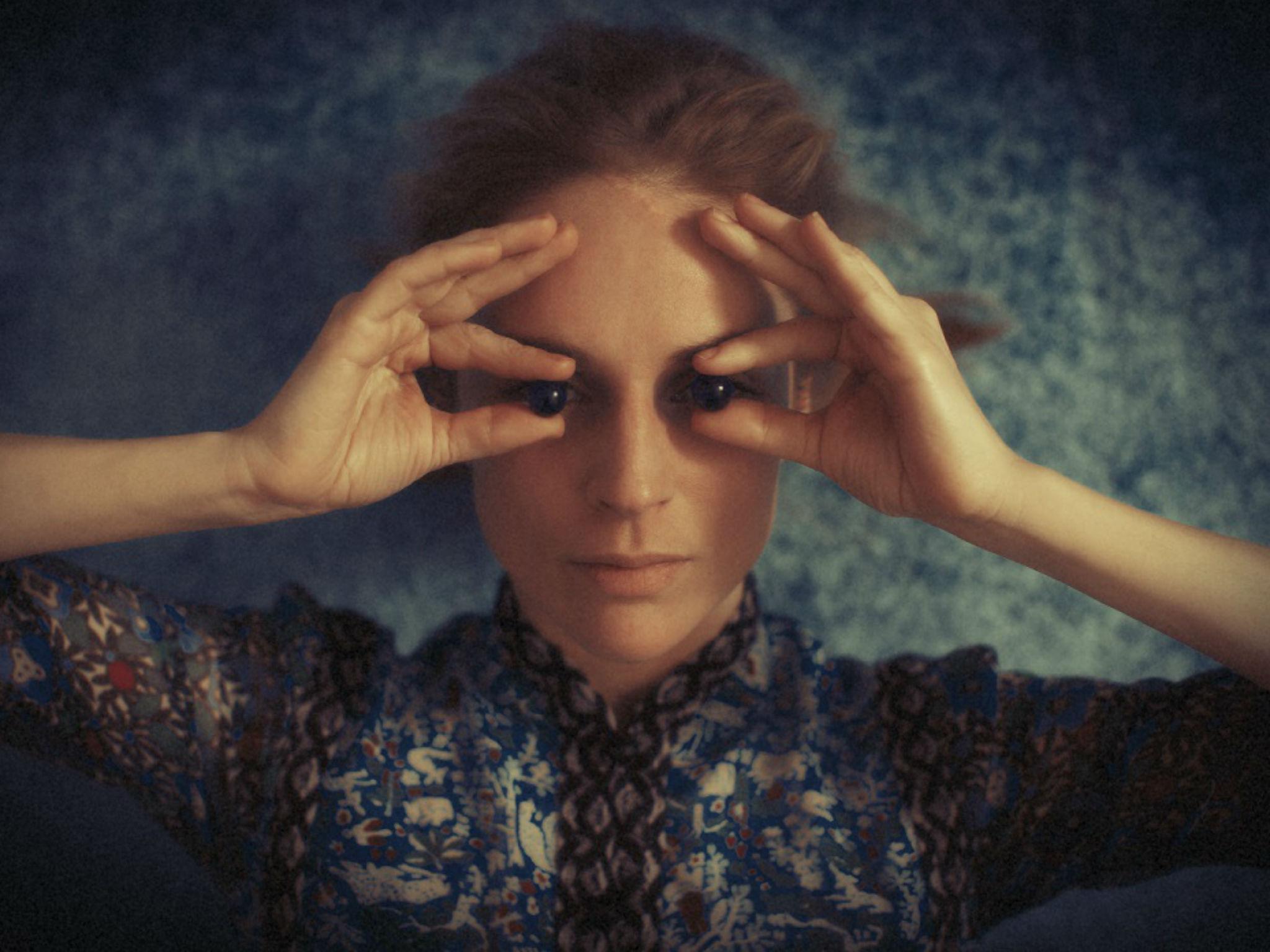Agnes Obel interview: The songstress talks about her forthcoming album Citizen of Glass
‘I was just relieved that we made it through, with all the live looping and an insane amount of different instruments and dynamics’

Your support helps us to tell the story
From reproductive rights to climate change to Big Tech, The Independent is on the ground when the story is developing. Whether it's investigating the financials of Elon Musk's pro-Trump PAC or producing our latest documentary, 'The A Word', which shines a light on the American women fighting for reproductive rights, we know how important it is to parse out the facts from the messaging.
At such a critical moment in US history, we need reporters on the ground. Your donation allows us to keep sending journalists to speak to both sides of the story.
The Independent is trusted by Americans across the entire political spectrum. And unlike many other quality news outlets, we choose not to lock Americans out of our reporting and analysis with paywalls. We believe quality journalism should be available to everyone, paid for by those who can afford it.
Your support makes all the difference.“I'm the type of person who thinks best when it's quiet,” maintains softly-spoken Agnes Obel, which is a little unfortunate as the north London pub where we meet is sporadically noisy and the Danish singer-songwriter is clearly distracted by the surrounding sounds (breaking glass, boisterous customers).
The night before we meet, the Berlin-based musician played to an intensely quiet and gripped crowd where you could hear a pen drop (yep, I dropped that pen). She performed the entirety of her excellent and haunting new album, Citizen of Glass, which features cellos, harpsichords, violins, spinet, celesta and a trautonium, a metal-keyed synthesizer from the late 1920s. But the highlight is her pristine vocals, which are a heady blend of Ann Brun, PJ Harvey and early Sinead O’Connor.
Backed by her accomplished all-female band, it’s a typically mesmeric performance from Obel, an artist who loves to blend “light and dark” in her slightly unnerving songs. Her delicate features light up when I mention this and how her single “Familiar” (and the line “Our love is a ghost that the others can’t see”) reminds me of Tomas Alfedson’s 2008 chiller film Let the Right One In.
“I love that film and, yeah, definitely I love to unnerve,” she admits. “With Citizen of Glass, I wanted to be more open with how I experience things and I really needed to have this tension in there; the feeling of something just about to break apart.”
The title Citizen of Glass, her third record, comes from the German concept of the gläserner bürger, meaning the human or glass citizen. It’s actually a legal term about the level of privacy the individual has in a state, and in health it has become a term about how much we know about a person’s body or biology or history – if they’re completely made of glass we know everything. Obel is fascinated by an artist’s level of transparency and privacy, and how willing they are to reveal personal revelations.
“I really wanted to put across the feeling of being transparent because I definitely look up to the writers and singers who use themselves like that,” she claims, in perfect English (Obel speaks three languages and can count up to 17 in five). “But I’m also scared of this idea of using oneself, teetering on the border of private and personal.”
“I wanted to communicate that I don’t feel 100 per cent about everything with the song “Trojan Horses” and I wanted to write about it’s like having Trojan horses in your head,” she continues. “You feel like you’re made of glass and watch yourself from the outside, you sort of like it but don’t.”

“Trojan Horses”, from Citizen of Glass, certainly feels like a deeply personal track, as does “Storm”, which deals with “love and guilt”, two themes Obel has always wanted to tackle.
“I really think guilt is a way that we control each other, especially in love relationships,” reveals 35-year-old Obel, who has been with German photographer Alex Bruel Flagstad (sitting nearby) for about 13 years. “Sometimes I dream about guilt not being part of our relationships; you’re not doing it because you feel guilty. I feel in Danish culture – and I know in German culture – there’s a lot of guilt going on. It would be wonderful if guilt wasn't there.”
Enjoy unlimited access to 100 million ad-free songs and podcasts with Amazon Music
Sign up now for a 4 month free trial (3 months for non-Prime members)
Enjoy unlimited access to 100 million ad-free songs and podcasts with Amazon Music
Sign up now for a 4 month free trial (3 months for non-Prime members)
She emphasises that there’s a lot of guilt in Danish culture, despite the fact that Denmark once again topped the United Nation's World Happiness Report this year. Indeed, the Danish concept hygge (pronounced “hoo-gah” and meaning cosy intimacy) has become a huge trend in publishing. Obel, however, doesn’t entirely embrace hygge.
“Hygge makes sure that things are not formal,” she maintains. “It’s very important for Danish people that things are not formal, it freaks them out. As soon as I see a Danish person it’s about establishing that we don’t need formality.
“But the thing about the Danish informality is that has become this sort of passive-aggressive thing,” Obel adds. “Everything has to be informal and you're afraid of being serious, you can’t say anything earnest without sounding ridiculous. You have to be funny and down to earth even when you don’t need to be, even on the news. On German news it’s really serious, but in Denmark it’s like, ‘we're having fun here’.”

Obel enjoys the seriousness and formality of Germany, a country she’s lived in since 2006 (“I really love living in Berlin; it's this blindspot in Europe with the strangest history”) and a place that adored her sparse, immaculate 2010 debut, Philharmonics (featuring the exquisite “Riverside”), a record that also went five-times Platinum in Denmark and was adored throughout France. On the album’s cover Obel appears next to a perturbing owl and the image (photographed by Berlin photographer Mali Lazell) is a homage to Alfred Hitchcock’s The Birds. Indeed, Obel wouldn’t look out a place as a “Hitchcock blonde”; there’s a faint resemblance to Tippi Hedren in this complex singer who retreated from the limelight after Philharmonics, emerging with the deeply personal, but understated Aventine three years later before her finest and most ambitious record, Citizen of Glass (released on 21 October). When performing the album she appears to be supremely confident but Obel disagrees.
“It was a complete bluff because it’s such a difficult album to play,” admits the classically-trained Obel. “I was thinking as we started to prepare, ‘how did you ever think you could play this live, what were you thinking?’”
“I was just relieved that we made it through, with all the live looping and an insane amount of different instruments and dynamics.”
It’s a fiercely experimental experience from this cerebral artist and while the record isn’t obviously political, it is provocative and unsettling which is (sort of) political in itself. She talks about an Icelandic artist who maintained that music doesn't have to be “straightforward political”.
“All you have to do is make something that’s inherently different,” she stresses. “You’re establishing space for something that’s an alternative to the mainstream or dominant culture.
“I believe in the broader perception of political art; it is about listening and seeing things in a new way, so you can experience things from the eyes of somebody else.”
This was something Joni Mitchell, an artist Obel greatly admires along with Roy Orbison and composer Erik Satie, excelled at.
“Mitchell’s music always felt political to me because it was so idiosyncratic and specific to her, and so introspective and powerful,” she enthuses. “She was being so feminine and powerful and speaking so much from her point of view, which is in itself political I think.”
The same could be said Agnes Obel, a distinctive and impressive artist.
Agnes Obel’s ‘Citizen of Glass’ is released on Friday 21 October; she tours the UK from 26 November starting at Anson Rooms, Bristol
Join our commenting forum
Join thought-provoking conversations, follow other Independent readers and see their replies
Comments